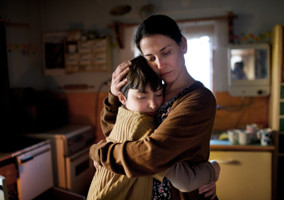Charities are “disappointed” by the lack of government action on tackling the cost-of-living crisis, as Boris Johnson ruled out any emergency fiscal interventions earlier this week.
The spokesperson for Johnson said this is a task for “the future prime minister” as "by convention, it is not for this prime minister to make major fiscal interventions during this period".
The new prime minister will take over once the leader of the Conservative Party is decided on 5 September.
However, charities like Citizens Advice told Civil Society “there's no time to waste” as demand for its services rise.
Mind has said the crisis is negatively impacting people's mental health, as the number of people that have contacted its helpline about financial difficulties has risen by 30% this year compared to 2021.
Refuge: ‘An emergency fund should be put in place’
Ruth Davison, chief executive of the domestic abuse charity Refuge, said her organisation was “disappointed” that the prime minister had ruled out an urgent fiscal intervention.
“The crisis is impacting many of the most vulnerable, including survivors of domestic abuse who are facing increased barriers to fleeing their perpetrators, due to economic hardship,” she said.
“A recent survey of Refuge frontline staff revealed that 75% of frontline workers surveyed said that the cost-of-living crisis means that survivors needed to use food banks for essentials. 92% reported that it is pushing survivors further into debt and 73% said the cost-of-living crisis is increasing barriers to leaving their perpetrator.
“Refuge supports the call of Women’s Aid Federation England for an emergency fund to be put in place for survivors of domestic abuse, and for the £20 Universal Credit uplift to be immediately reintroduced for all claimants, as a first step towards ensuring survivors of domestic abuse are able to flee and access the specialist support, they need and deserve.”
Citizens Advice: ‘There’s no time to waste’
Morgan Wild, head of policy for Citizens Advice, said: “The cost-of-living crisis is already having a devastating impact on people’s lives. Every day we hear from people who can’t afford to turn the lights on or cook their kids a hot meal.
“The government did the right thing by bringing in targeted support, but it won’t be enough for people to manage these previously unthinkable price hikes. The obvious place to start is to increase benefits to keep pace with the cost of living. There’s no time to waste.”
StepChange: ‘A clear and ambitious set of measures is needed, and fast’
Richard Lane, director of external affairs at StepChange Debt Charity said: “We know the situation for many households across the country is already dire - figures out today show consumers are trapped in £1.3bn of energy debt, while around one in four StepChange clients are coming to us with energy debts – a significantly higher proportion than before the pandemic. Against this backdrop, a catastrophic price cap rise is looming, threatening many millions of households with fuel poverty, problem debt and the prospect of making unthinkable choices between turning the heating on and feeding their families.
“It is not too late to help those on low incomes to navigate this increasingly difficult period, but time is running out. A clear and ambitious set of measures is needed, and fast.”
Joseph Rowntree Foundation: ‘Everyday action is delayed, anxiety for low-income families’ increases’
Peter Matejic, chief analyst at the Joseph Rowntree Foundation, said: “The latest projections of annual energy bills exceeding £4,200 from January is the latest in a series of terrifying warnings over the past week, from the Bank of England and others. Families on low incomes cannot afford these eye-watering sums and as a nation, we can’t afford to ignore an impending disaster.
“Everyday action is delayed is increasing anxiety for low-income families who do not know how they will get by this winter. The payments promised by the government earlier in the year offer some help but their scale has been overtaken by events, and they must now be at least doubled if they are to protect people from serious hardship on a massive scale.”
Mind: ‘The cost-of-living is fast becoming the UK's mental health emergency’
Vicki Nash, head of policy, campaigns and public affairs at Mind said: “The cost-of-living crisis is currently running head first into the UK’s post-Covid mental health emergency – and both need addressing urgently. According to the ONS, rates of depression have doubled since 2019, and at Mind earlier this year we were already seeing a 30% rise compared to the previous year of the number of people getting in contact with our helpline about financial difficulties.
“As more and more people start experiencing money problems, it follows that more people will need support with their mental health, which will only add pressure to our already stretched-to-their-limits mental health services.
“If the UK government doesn’t quickly get a grip on what’s happening to our country’s household finances, and address the years of underinvestment in mental health services, we are on course for an incredibly difficult winter for millions with little help available. People need support now – for their finances and their mental health.”
Crisis: 'We can't afford to wait'
Jasmine Basran, policy manager at Crisis, said: “Forecasts this week that energy bills will skyrocket to over £4,000 per household are hugely alarming, causing real distress to many people who are already struggling to balance high rents with bills and rising food costs.
“We need assurances now – we can’t afford to wait until a new prime minister is chosen weeks from now to understand what help households will receive. The government and leadership candidates must grip this crisis and agree measures to support people as quickly as possible. This should include increasing housing benefit so that it covers the cost of renting, so people don’t need to worry about their rent increasing at the same time as their energy bills, putting them at risk of losing their homes.”
Related articles











